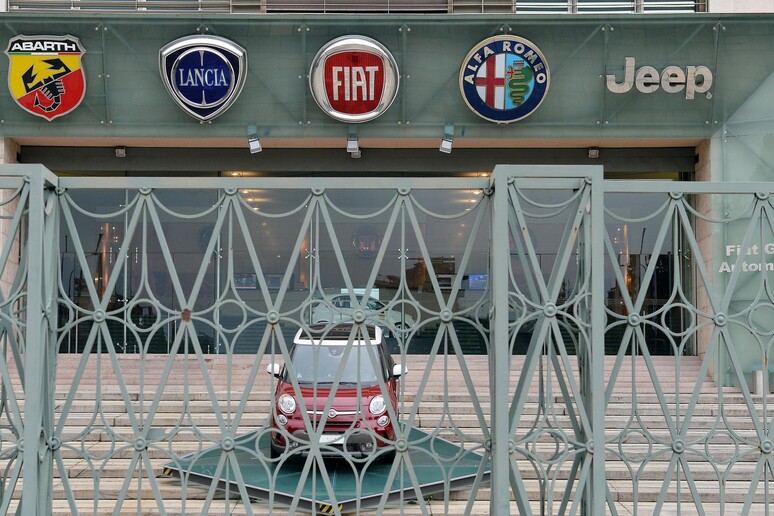As Fiat Chrysler Automobiles
(FCA) made its official debut on the New York Stock Exchange
Monday, the company plaque was removed from the historic
Lingotto headquarters of the former Fiat, signaling a dramatic
change in direction for Italy's flagship automaker.
Although Fiat's corporate leadership has claimed it will
stay true to its Italian roots, the company founded in Turin in
1899 has dispersed its corporate bases throughout Europe,
including moving its registered office to Amsterdam and its tax
office to London.
Trading on Wall Street was another major step in that
dispersion of financial power, as it will allow FCA much wider
access to sources of financing.
"The listing of FCA marks an important milestone conquered
with tenacity," Chief Executive Officer Sergio Marchionne said
in a statement.
"Yet, like so many milestones, is not just the end of
something, but it is above all a new beginning.
"Today marks the beginning of our journey as FCA," added
Marchionne, who was to ring the closing bell on the NYSE, ending
Monday's trading session.
On Wall Street, FCA gained 5.63% in the opening minutes of
trading to reach $9.19 from an initial price of $9.
Shares in FCA, the world's seventh largest automaker, will
continue to trade on Milan's major stock exchange, the FTSE Mib,
where the stock ended a shortened trading day at 7.025 euros per
share after a gain of 1.22%.
FCA President John Elkann, whose family founded Fiat 115
years ago, called it "an historic moment".
A white flag with the blue logo of the new FCA was raised
at the company's Italian headquarters, but Turin will no longer
host company assemblies of shareholders, which will instead be
held in the Amsterdam area and subject to Dutch laws.
A centre-left city councillor in Turin, Silvio Viale,
called for a minute of silence Monday "in memory of Fiat which,
after 115 years, now disappears from the city".
FCA will manage some of its operations out of Turin and
some from Detroit, where Chrysler had been based before the
audacious merger of the automakers organized Marchionne.
The Italian-Canadian has said that FCA will maintain its
social and labour commitments to Italy.
"We are rooted in the territories in which we operate,"
Marchionne said in August.
"In all the choices we have made and what we do, we try
always to find the right balance between the logic of profit and
social responsibility," he said.
Still, he has made it clear that the merger was aimed at
creating a global enterprise "that can and should aim high,"
Marchionne added at that time.
FCA's new production plans would see a 60% jump to more
than six million autos per year by 2018 after Fiat and Chrysler
separately delivered a combined total of 4.4 million cars last
year.
The deal was finalized at the beginning of 2014, when
Marchionne gained full control of Chrysler in a $4.35-billion
deal after more than a year of negotiations with VEBA, a
healthcare trust associated with the United Auto Workers union,
to acquire the remaining 41.46% share of Chrysler.
It all began in 2009, when Marchionne struck a deal with
the United States government that enabled Fiat to take over the
then-ailing Chrysler and quickly revive the America company's
fortunes.
ALL RIGHTS RESERVED © Copyright ANSA











